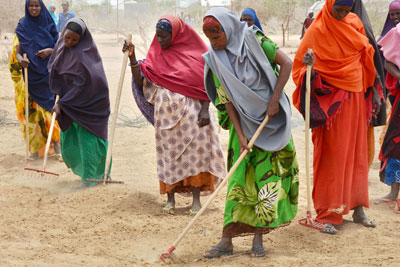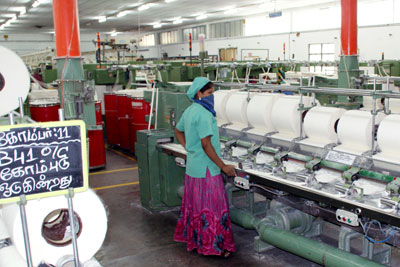Women and the economy
Violence against women costs women, families, and societies. A UN Women study estimating the costs of domestic violence against women to the economy in Viet Nam suggests that both out-of-pocket expenditures and lost earnings represent nearly 1.4 per cent of GDP, with estimated lost productivity reaching 1.8 per cent of GDP.
Women experiencing violence, especially at the hands of a partner, are less likely to be economically active or very productive. Women and girls experiencing sexual harassment and sexual violence in public spaces such as in public transport, on the way to school, work or markets will also be limited in their mobility and job prospects. Addressing women’s economic inequality is also of particular importance in reducing violence against women in the long-term.
To ensure that women can take full part in the economy, UN Women runs multiple programmes for women’s economic empowerment, including those specifically for survivors or designed to prevent violence. We work with partners to ensure that public spaces, including workplaces, are free of violence and sexual harassment through our Safe Cities Global Initiative and other partnerships.
Braving dust storms, women plant seeds of hope at the Dadaab refugee camp
In Kenya’s Dadaab refugee camp — the world’s largest and home to 341,359 Somali refugees as of September 2014 — a livelihood project implemented with the support of UN Women is helping prevent gender-based violence. Three hundred vulnerable women from the camp are being trained in business management and starting income-generating agricultural projects, so they don’t have to walk far distances in unsafe places to fetch food or supplies. Six greenhouses have also been purchased, where the women have begun preparing the land for crops.
In India’s garment factories, stitching clothes and a culture of non-violence
In India’s garment factories, where workplace harassment and sexual violence is widespread, a UN Trust Fund-supported project is training thousands of workers on ways to combat the issue. The project has provided training to 3,500 workers in 24 factories across India and Bangladesh, and to another 15,000 workers via peer-to-peer education. Anti-harassment committees have been created as a result of the project, and women are learning to speak out about their experiences.
What the Beijing Declaration says about Women and the economy
Read our Beijing+20 In Focus package on Women and the economy
Go back to UN Women's In Focus compilation on Ending Violence against Women 2014

